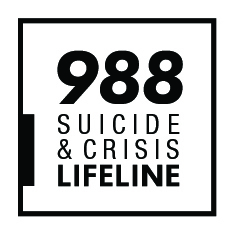Mental Health Matters: June is Pride Month
An estimated 373,000 Michigan residents identify themselves as lesbian, gay, bisexual, transgender and queer (LGBTQ+). As a state, we have made progress to expand equal rights for the LGBTQ+ community and for the first time in history, Governor Whitmer recently signed a proclamation recognizing June as Pride Month in Michigan. Unfortunately, LGBTQ+ people continue to experience several health disparities, which can create a significant impact on their mental health and wellbeing.
Discrimination and stigma are two leading factors that have a direct impact on the mental health of the LGBTQ+ community. A common statistic shared while talking about the prevalence of mental illness is that one in five adults in the U.S. live with a mental health condition. However, LGBTQ+ individuals are nearly three times more likely than others to fall into the group. Fighting dual stigmas related to their mental health and sexual orientation creates a perfect storm that increases their odds for more severe symptoms related to mental health.
Individuals who belong to the LGBTQ+ community face higher levels of anxiety, depression, suicidal ideation, and substance use disorders. They are two to three times more likely to have depression. Experts estimate that 30-to-60 percent of LGBTQ+ people experience depression during their lives because they do not feel safe to live in their true identity, forcing them to live as their inauthentic self.
Suicidal ideation among the LGBTQ+ community is also at a higher level than the general population. Studies show 40 percent of transgender people have reported attempting suicide, while as high as 65 percent of transgender people have experienced suicidal ideation. LGBTQ+ youth are three to four times more likely to consider suicide or commit self-harm than heterosexual youth because of factors like discrimination.
Anxiety is another common mental illness experienced by those in the LGBTQ+ community. As they share their sexual orientation with others, they are often fearful that people will not accept their identity, will be discriminated against or be subjected to homophobic treatment. The fear of being judged can lead to constant mild to extreme anxiety.
The fear, anxiety and isolation that LGBTQ+ individuals face are factors that also contribute to an increased rate of substance use disorders. The National Survey on Drug Use and Health found that an estimated 20-to-30 percent of the LGBTQ+ community struggle with substance use disorders, compared to about nine percent of heterosexual individuals. Substances such as drugs or alcohol are used as a way to cope with the emotions and stressors related to their sexual identity.
At West Michigan Community Mental Health, we are open and accepting of everyone’s expression of sexuality and gender. We validate your identity and who you are. Starting in July, CMH will be offering an LGBTQIA+ support group that serves as a safe space to discuss various topics, struggles and achievements. For more information on the support group or the services we provide, call 1-800-992-2061.
Lori Schummer is the Director of Public Relations and Customer Services at West Michigan Community Mental Health. She may be reached by calling (231) 843-5485 or email lori3s@wmcmhs.org.
 or
or 